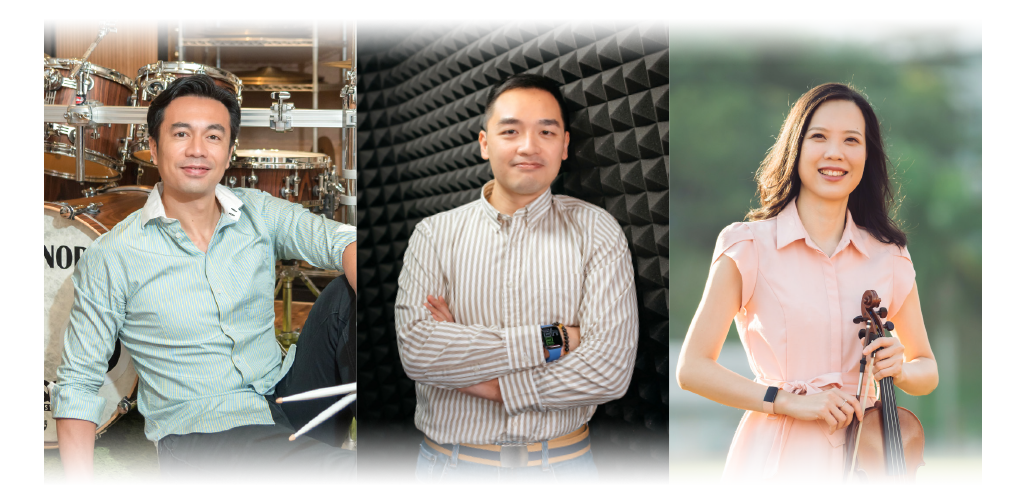HKUST is at the forefront of science and technology research and education, but some alumni choose to pursue a passion over a career in their chosen degree subject. We speak to three alumni who have made their names as professional performers.
Passion is a powerful thing, particularly when nurtured. And often it cannot be ignored. This was something that alumni Lawrence Tsui (BEng Computer Engineering 2001), Ken Wong (BSc Physics 2004) and Pauline Tang (BEng Chemical and Environmental Engineering 2004, MSc Environmental Engineering 2007) all found, each of them pursuing their extra-curricular interests to varying degrees while studying at HKUST.
Lawrence chose a degree in Computer Engineering at HKUST but its study rarely dominated his time at university. Instead, his early days on campus helped him decide what he really wanted to do in life — to become a professional drummer. From there, although he continued to attend lectures and complete assignments, he made the most of the University’s resources and facilities to further his musical ambitions.
A deep interest in Physics drove Ken to study at HKUST and through this he became involved in the Astronomy Club, hosting and emceeing at various events and indulging a rare love for public speaking. His innate ability to stand up in front of large audiences, projecting presence and voice would bode well for him when, on graduation, he had the opportunity to train as a voice actor with TVB.
For Pauline, it was always about balance. An interest in science led to an undergraduate degree in Chemical and Environmental Engineering, but she indulged her musical tendencies in her leisure time. Unsure of her career path, a Master’s degree in Environmental Engineering followed before she eventually realized that music was her calling, at which point she went on to spend a further five years studying, first at the Hong Kong Academy for Performing Arts and then at James Madison University in the US, before returning to Hong Kong to forge a career as a professional violinist and teacher.
While none of them went on to do anything directly related to their degrees, all found their time at university helped to hone their passions and contribute skills that would enable them to reap rewards doing what they love.
Lawrence Tsui
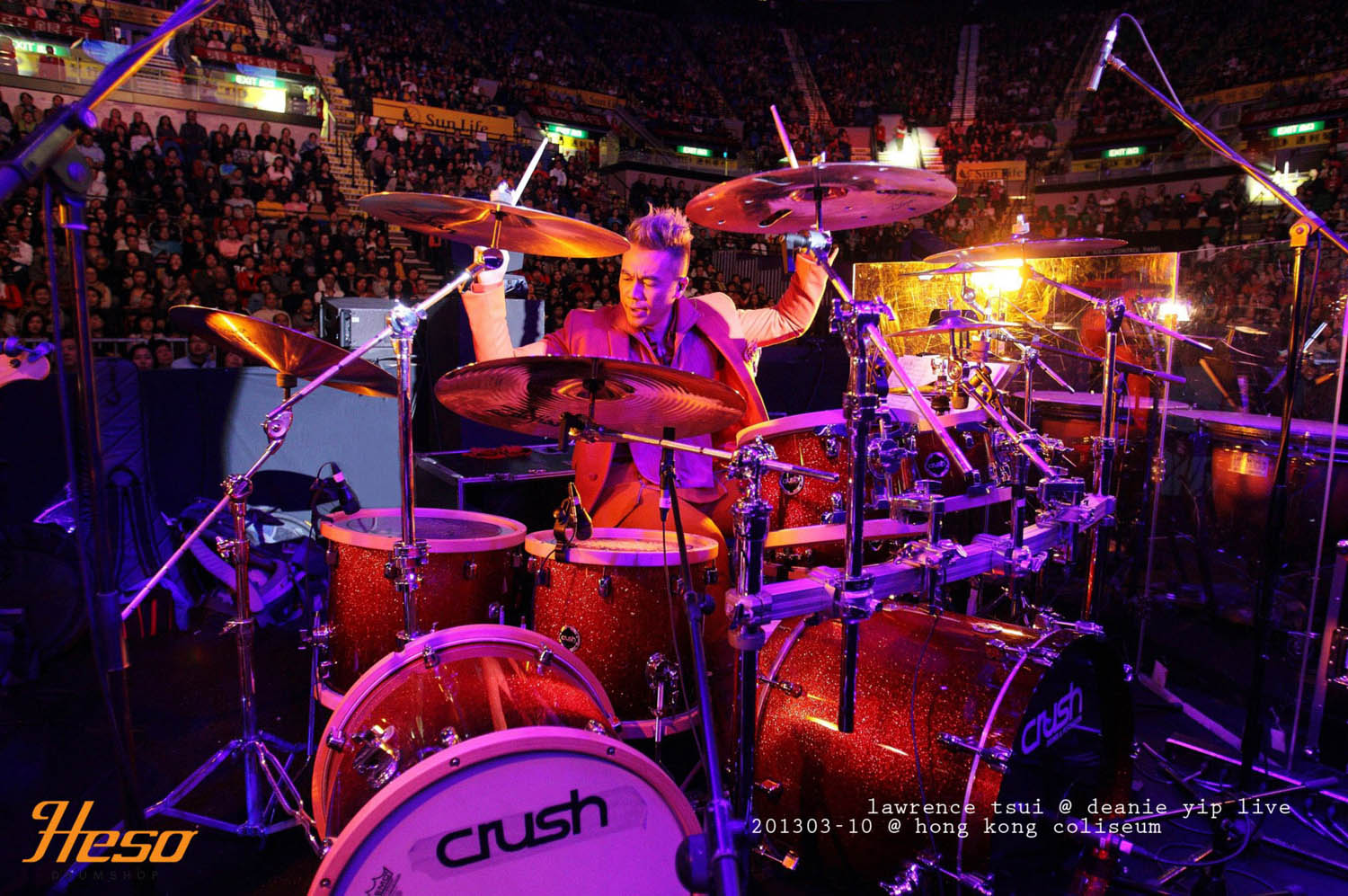
You think you can’t achieve something but when you actually try, you realize you can overcome it.
“I have always wanted to do things that other people aren’t doing,” says Lawrence. This began with his decision to learn piano at a time when few other boys were doing so. He quickly progressed to grade 7 before pop music stole his heart and he swapped Bach and Mozart for the Four Kings of Hong Kong: Jacky Cheung, Andy Lau, Aaron Kwok and Leon Lai and gave up piano in favor of basketball.
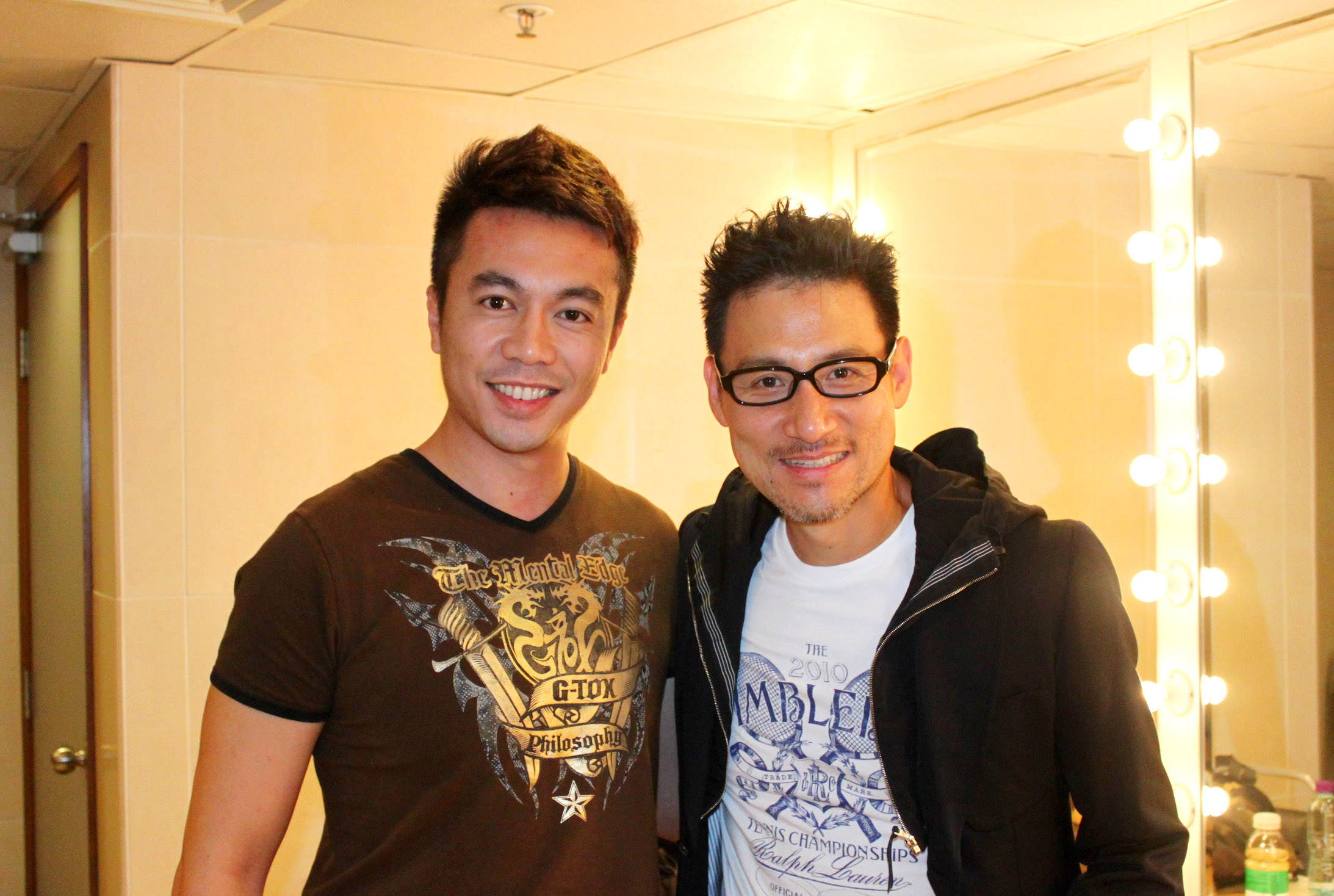
Playing music would, however, return. While studying at college, Lawrence discovered his church band was in need of a drummer and, lacking a musical endeavor at the time, he decided to learn. A few lessons revealed that he had the musical theory foundation from his piano background to teach himself so he started obsessively listening to songs by bands like The Beatles and Metallica as well as Canto-rockers Beyond, transcribing the drum beats and recreating them.
As the time approached to attend university, Lawrence settled on a subject he achieved good scores in while at high school. “Many people at that time believed computers were the future and I just went for it,” says Lawrence of his choice to study Computer Engineering.
But arriving at HKUST allowed him to consider his prospects. “I started to think about who I was and what I wanted. Hong Kong is a busy, fast-paced city and sometimes it’s difficult to think about yourself. But HKUST was a good place for me to sit by the sea, listen to music, be in nature and to really think. I knew I really liked music and I really liked drumming and I made the decision to try to be a full-time musician.”
It was still early in his program, but Lawrence had made a choice. “I’m an energetic person and I didn’t want to be sitting at a computer all the time. I knew I couldn’t do that for my whole life.” He discussed his thoughts with his mother, proposing a switch to study contemporary music, but with few opportunities to do so in Hong Kong at the time, and the prohibitive costs of doing so abroad, Lawrence decided to complete his degree at HKUST while pursuing his passion for drumming alongside. He proceeded to spend all his spare time playing, occupying the student drum room whenever it was available, and raiding the library to learn more about drumming.
“It was hard for me to find balance for those three years of studying, but I learned a lot about how to do music research and how to communicate with different people. The program provided me with communication and team work skills as well as the facilities and environment,” he says.
Lawrence played in bands and even toured North America while at HKUST, deferring his studies for one year, and began taking part in competitions, winning the Best Drummer title at the Yamaha Hong Kong Open Band Competition in 2000 and again in 2001. “This gave me good exposure in the music community in Hong Kong,” he says. Following graduation, he started to make a living teaching and set up his own drumming studio in Mong Kok. But, he says, “I already knew teaching was not my future. I knew I wanted to dedicate myself to performing and production. That goal was very important.”
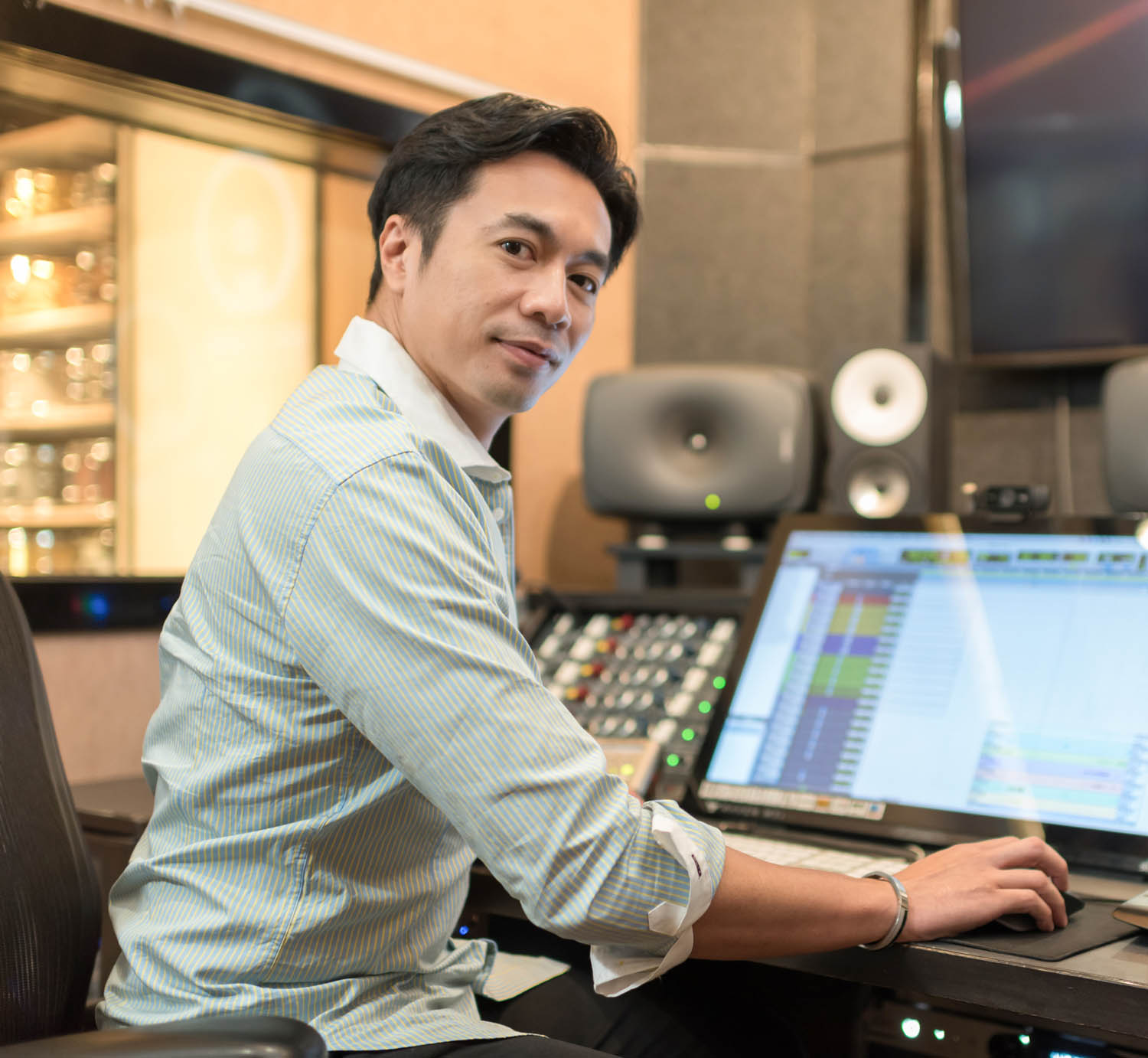
Then came his break. Canto-rock band Beyond was separating and drummer Yip Sai Wing(葉世榮)was forming a new band, taking up vocals. This left a vacancy on the drums – Lawrence leapt at the opportunity to play with members of a band whose songs had formed the foundation of his drumming. The gig also gave him exposure and a range of artists reached out to him to play drums for them. He would go on to play big concerts internationally with the likes of Jacky Cheung(張學友), Joey Yung(容祖兒), Grasshopper (草蜢)and Ekin Cheng (鄭伊健), to name a few. “This was my dream job, traveling to different cities and playing music. I enjoyed the rehearsals, the shows, the after shows. I got great satisfaction from it,” he says.
With a decade of touring under his belt, Lawrence started to pursue his other goal to produce music, investing in studio recording gear, renting a space and renovating it to establish GIG Studio, a state-of-the-art drumming space, thereby adding entrepreneur to his list of achievements.
It was 2012 and this was a bold move. “I wanted to make a recording studio which focused on drums because Hong Kong didn’t have one. I felt it was time for Hong Kong to be able to record drums in a better way. I wanted to push recording forward. When I set up my studio everyone said the recording studio business was going down, people were selling their gear, Hong Kong’s music industry was in decline and there was no hope for such studios. But I just tried to believe in myself. I always try to be a pioneer.”
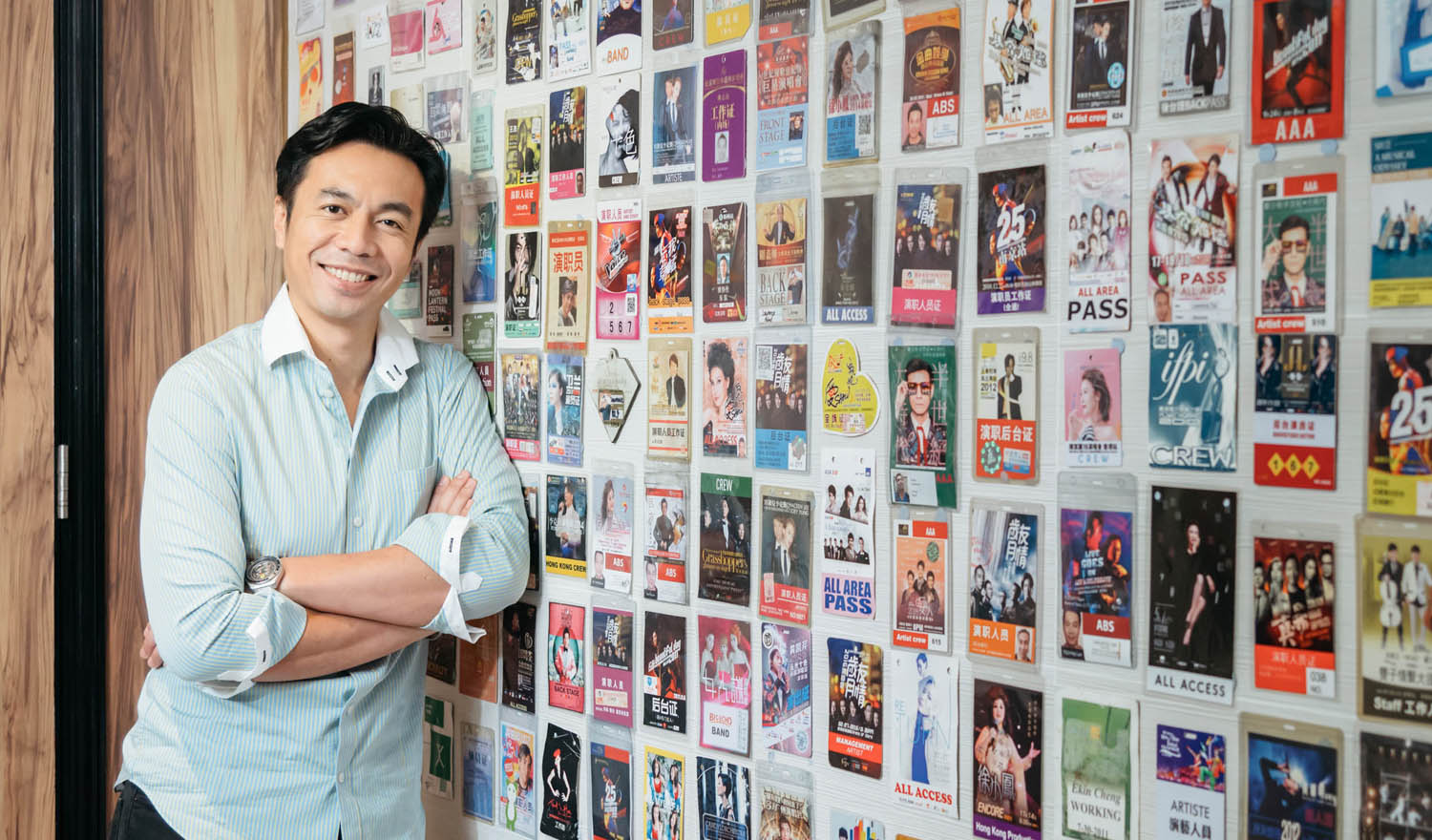
Almost a decade later GIG Studio is thriving and Lawrence is considering his next goal. “I never want to stay in the status quo,” he says. He has invited 40 drummers in Hong Kong to contribute to GIG Channel, a new YouTube channel sharing and promoting drumming music. “I want to dedicate the next ten years to sharing music, to give something back.”
But before he embarked on this challenge, Lawrence wanted to have a breakthrough in his life. Twenty years after graduating from HKUST he decided to take a long trip away to go back to nature, and spent 49 days walking the 1300km Israel National Trail, hiking every day and camping each night. The global pandemic was just about to take hold and with his schedule less hectic, it was a prime opportunity. Struggling at the start, he found he got stronger every day as he turned his two-month holiday into a positive experience, overcoming difficulties along the way.
“When you break through that sense of fear, often it’s not as frightening as you thought. You think you can’t achieve something but when you actually try, you realize you can overcome it.” No doubt this will ring true for Lawrence as he embarks on his next challenge.
Ken Wong
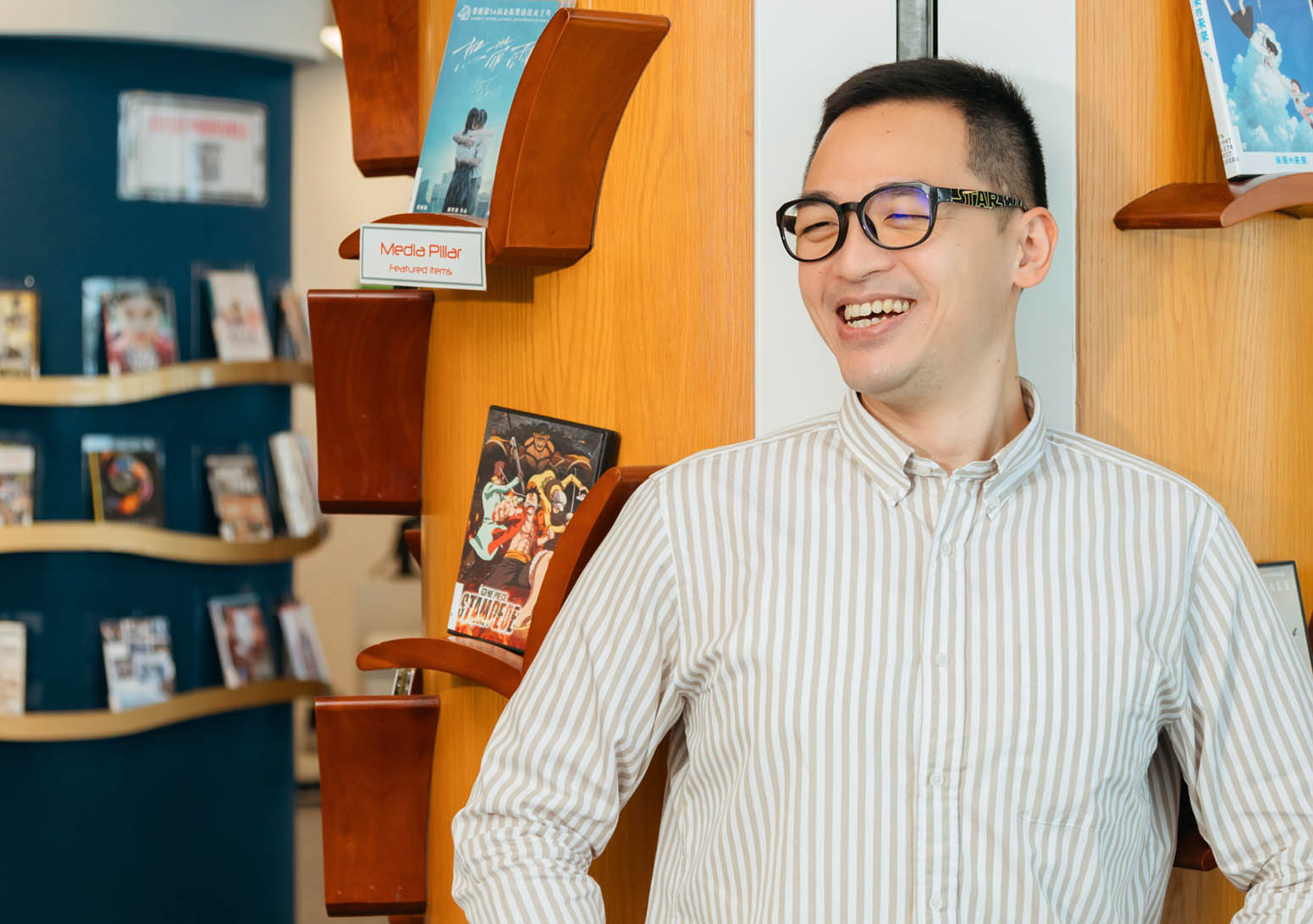
How you are educated does not determine your job. Your education is a weapon, not a limitation. It should not limit your choices.
Few people enjoy public speaking. But for Ken it came naturally. From a young age he reveled in the task of standing up in front of the whole school at assembly and reading out announcements. At the time, he had no idea how this might translate into a career but, along with a knack for karaoke, this would prove useful later.
Until that time, Ken decided to focus on Physics. “Every choice I have made in my life is based on my interest,” he says. “When I was young, I liked watching Gundam (a Japanese science fiction and military franchise). There are many robots in it. I thought that if I studied Physics I could build a Gundam, too.”
That may not have happened, but Ken did develop an interest in astronomy, joining the University’s Student Astronomy Club where he would host events and draw on his talents as an emcee. While studying, he had thought that Physics might lead to a career in teaching, but as graduation approached, a chance arose to apply for TVB’s training program for voice actors.
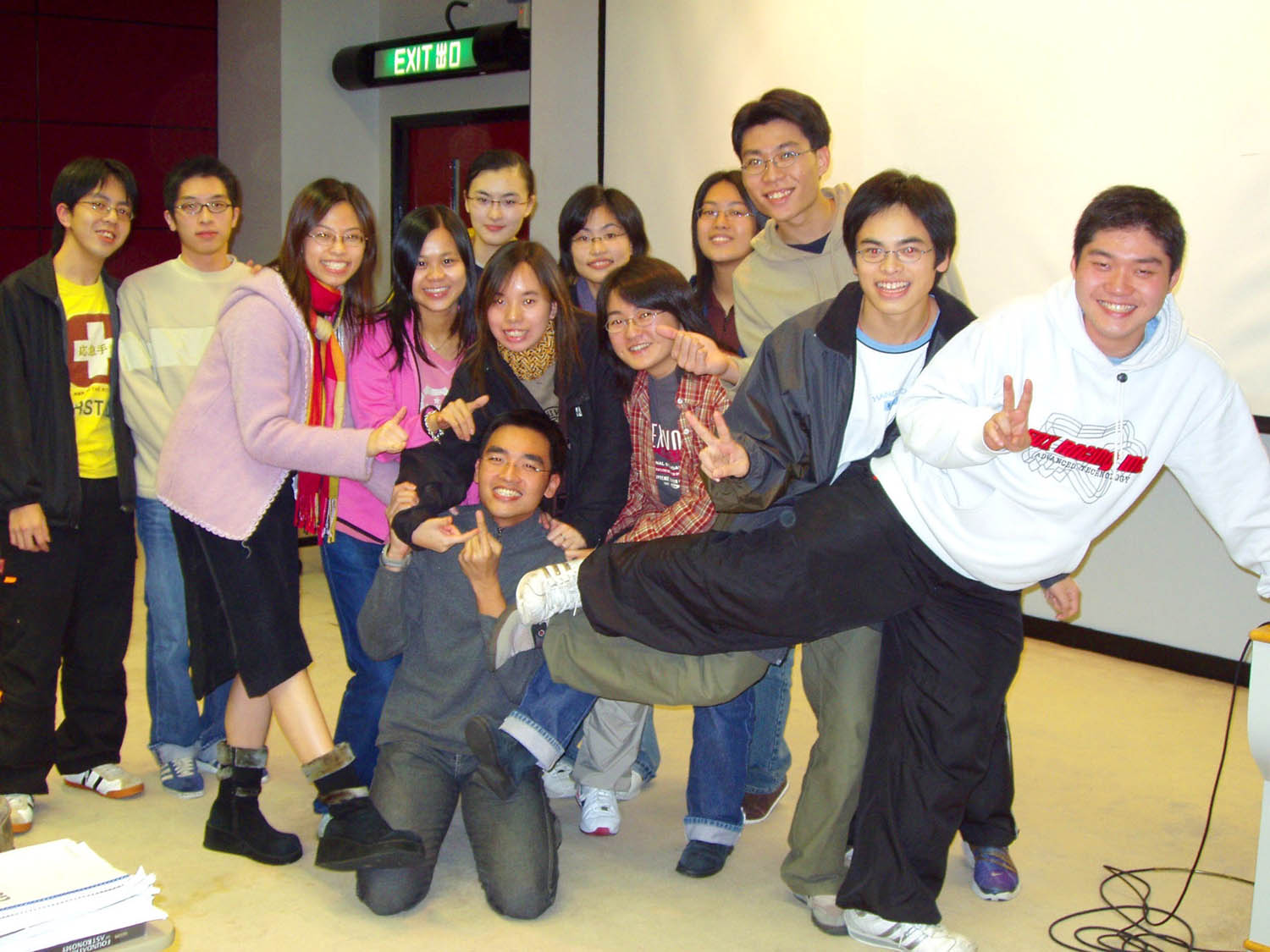
“It was a golden opportunity,” says Ken. “It happened at just the right time in my life.” TVB runs its voice actor training courses infrequently and only rarely recruits students. But Ken was alerted to the opportunity by Tam Shing Chu, his Putonghua teacher at HKUST, who saw potential in him for such a role and helped him to book a studio in which to record a demo. A successful audition saw him enrolled on the course which provided him with all the skills necessary to act in films and television, as well as teaching him about the history of voice acting and the various production skills and operations involved.
He also learned that your degree does not define your future. “How you are educated does not determine your job,” he says. “Your education is a weapon, not a limitation. It should not limit your choices.”
Ken embarked on a career with TVB after graduation that continues today and has seen him work as a voice actor on shows as wide-ranging as Doraemon, in which he plays Takeshi Gouda(胖虎); various Korean dramas featuring Lee Min-ho(李敏鎬) and Cha Tae-hyun(車太鉉); and popular Japanese television series Hanzawa Naoki(半澤直樹).
His favorite character is Sakata Gintoki (坂田銀時), which he plays in the Japanese manga series Gin Tama(銀魂). Gintoki is the show’s protagonist and is a businessman as well as a highly skilled samurai. “As this character, I have many different skills. It’s a role where I can also add local elements into the scripts. For example, when Gintoki sees a lady in a black-spotted dress, the original script says, “She’s wearing a polka-dot dress’, but I can say, ‘She’s wearing a Siu-fung dress’ because a Hong Kong audience will know I’m talking about Cantopop singer Paula Tsui Siu-fung (徐小鳳)who wears a signature polka-dot dress to perform.”
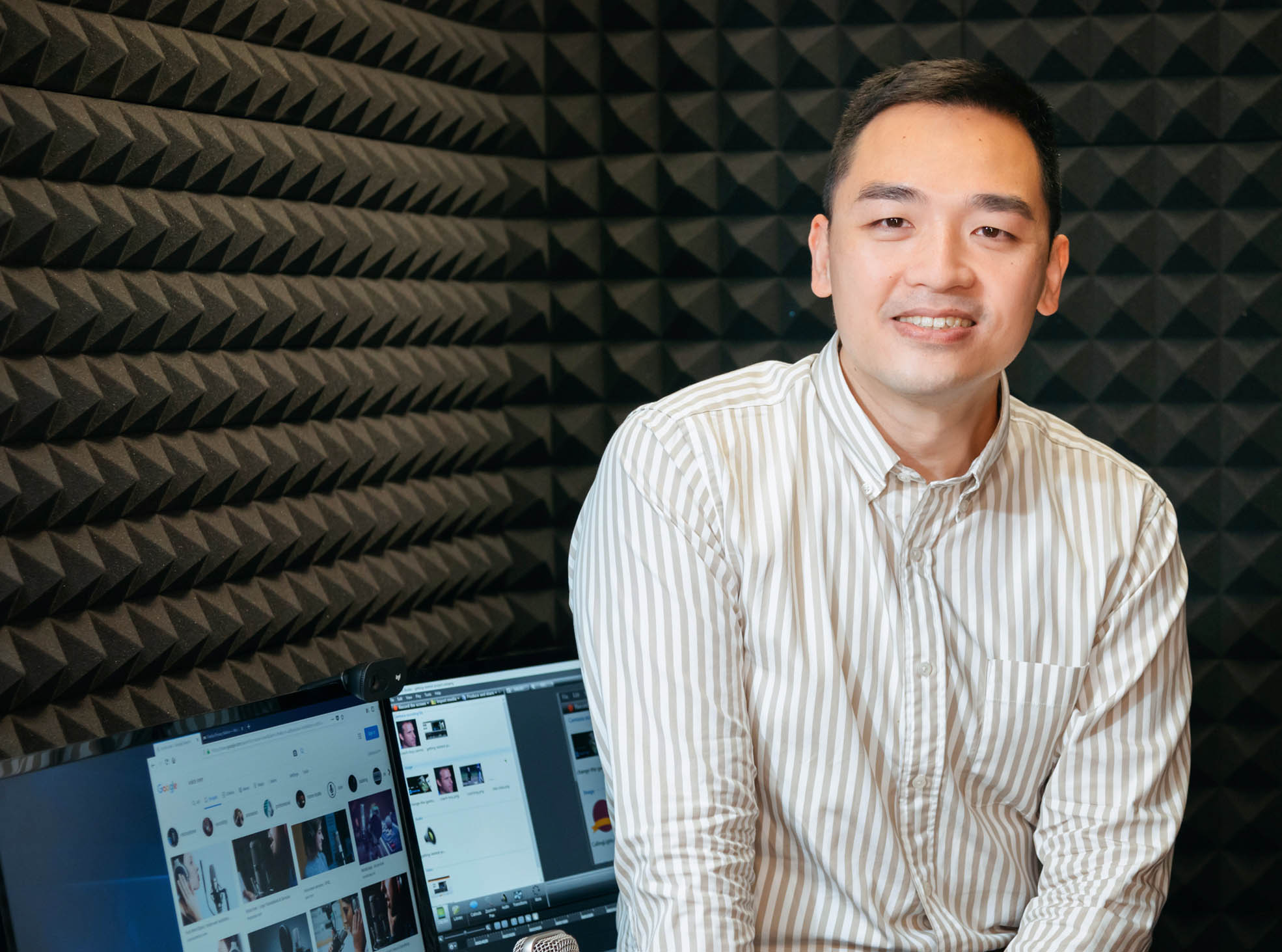
Ken’s job is rarely straightforward. His role requires a lot of preparation. He watches the whole season of a series in his own time before recording his part in order to prepare properly, though as a television lover he is delighted to be able to watch the shows before anyone else in Hong Kong. “It’s a dream job,” he says.
But it comes with its challenges. Some of the biggest arise when his characters are required to sing, particularly in different languages. While Ken doesn’t speak Korean, he may be called on to sing a Korean song which requires study and skill. He may also need to sing in Japanese, Putonghua and English, as well as his native Cantonese, for which karaoke has been useful training.
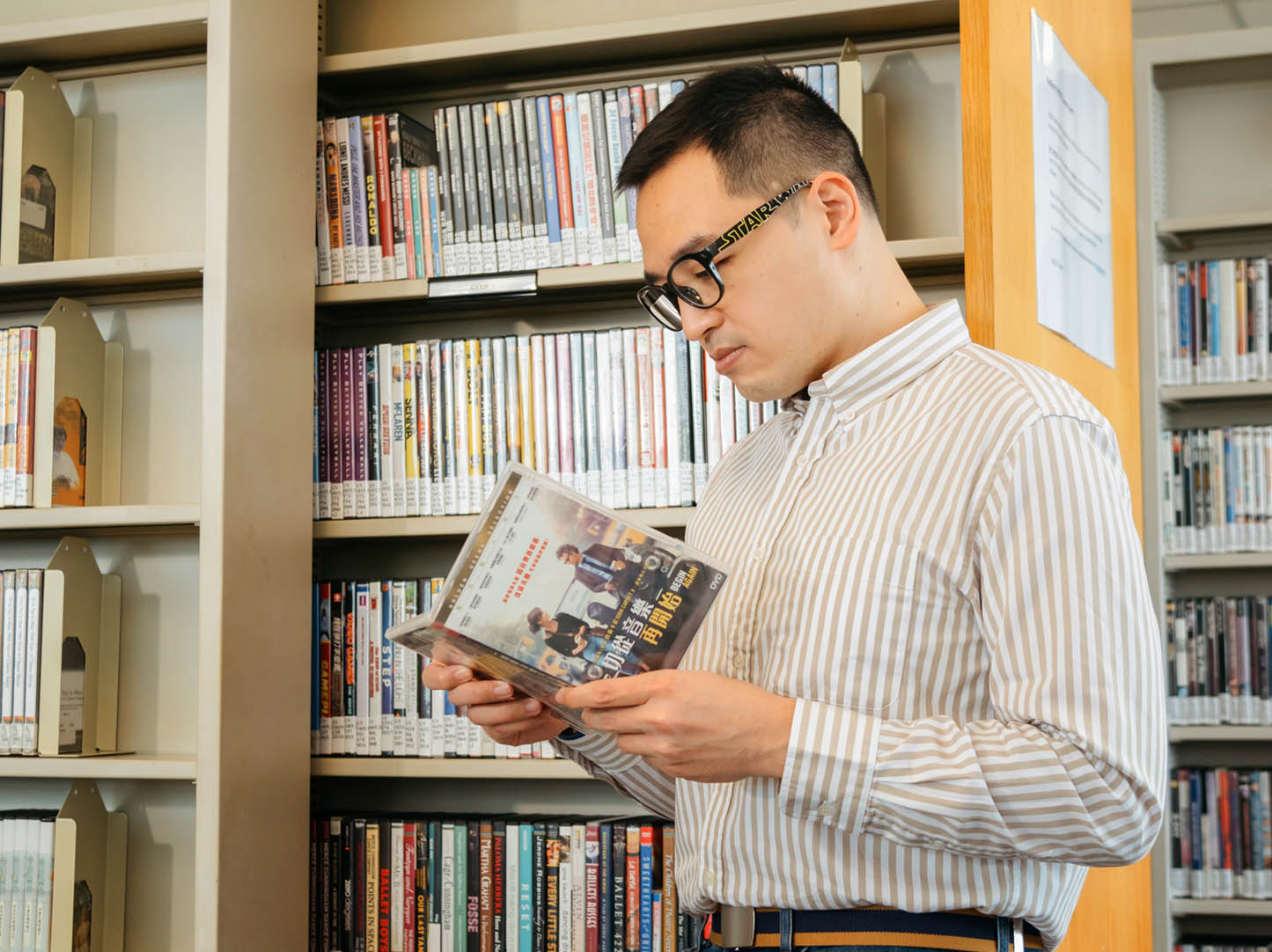
Covid has changed the way he works, too. “We work in a very dangerous environment,” says Ken. “When we are recording, we have six to ten people in a small room. We now do it with masks on which makes it harder. A mask is a limitation. Our mouth cannot open as wide so it’s hard to pronounce the words correctly. We don’t just have to speak louder but we need to control how the air flows so that our voices will be clearer; it requires more core!”
Whatever the challenge of the day, communication is one of the key skills. “My profession requires good cooperation with my teammates and with the characters in the drama,” says Ken. “The actors on the television do the emotions and I do the voice, so it’s a collaboration. It’s easy to learn, but hard to do well.”
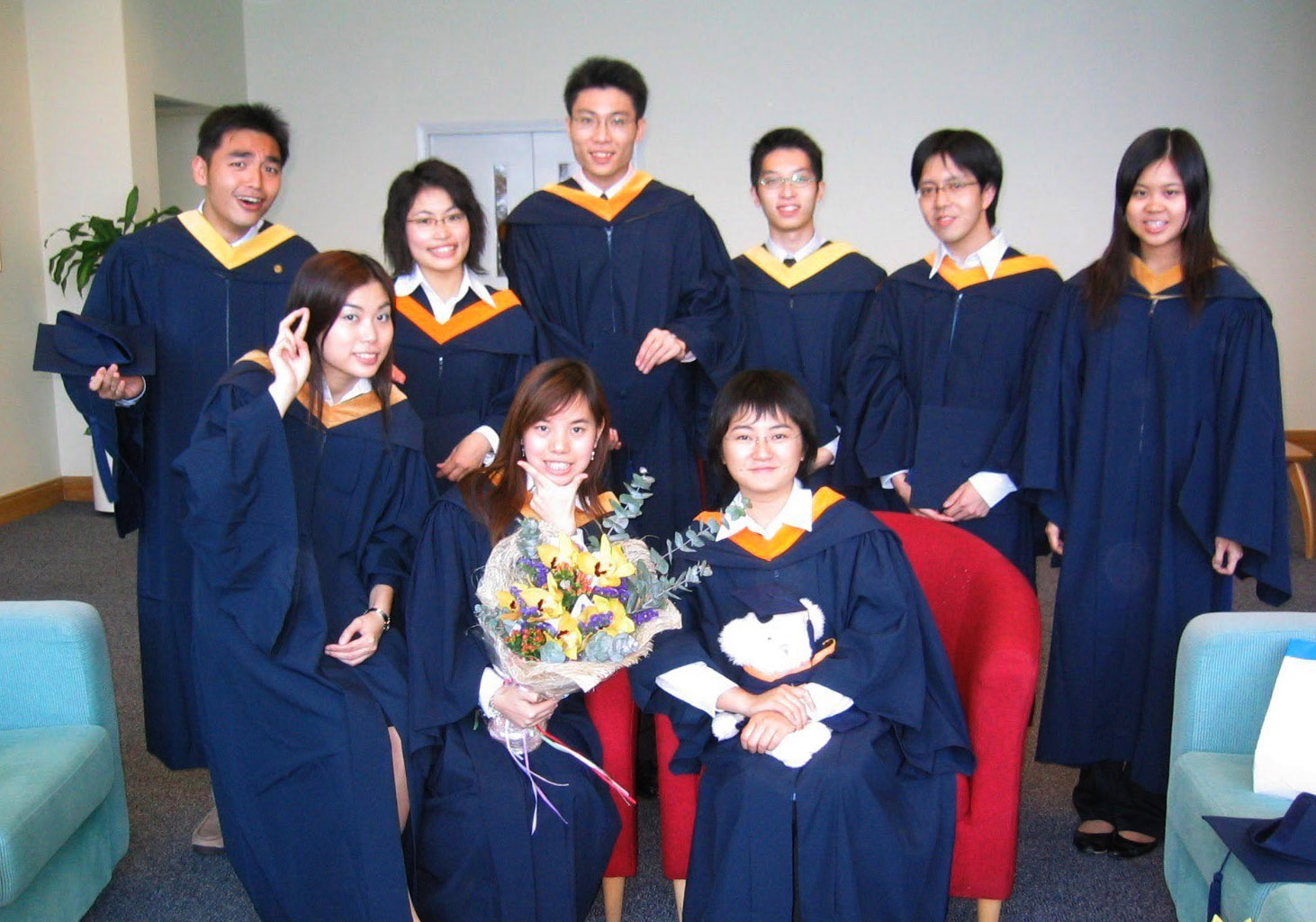
Ken is keen to expand his work outside television and into video and mobile games, and to potentially launch his own YouTube channel. But most of all he wants to tell the world more about his chosen field, the process involved in voice acting and the skills required. “People think it’s simple but behind the scenes there are many parts and many parties. I want people to know how we make a program and to see that it is a very hard and complicated procedure.”
Pauline Tang
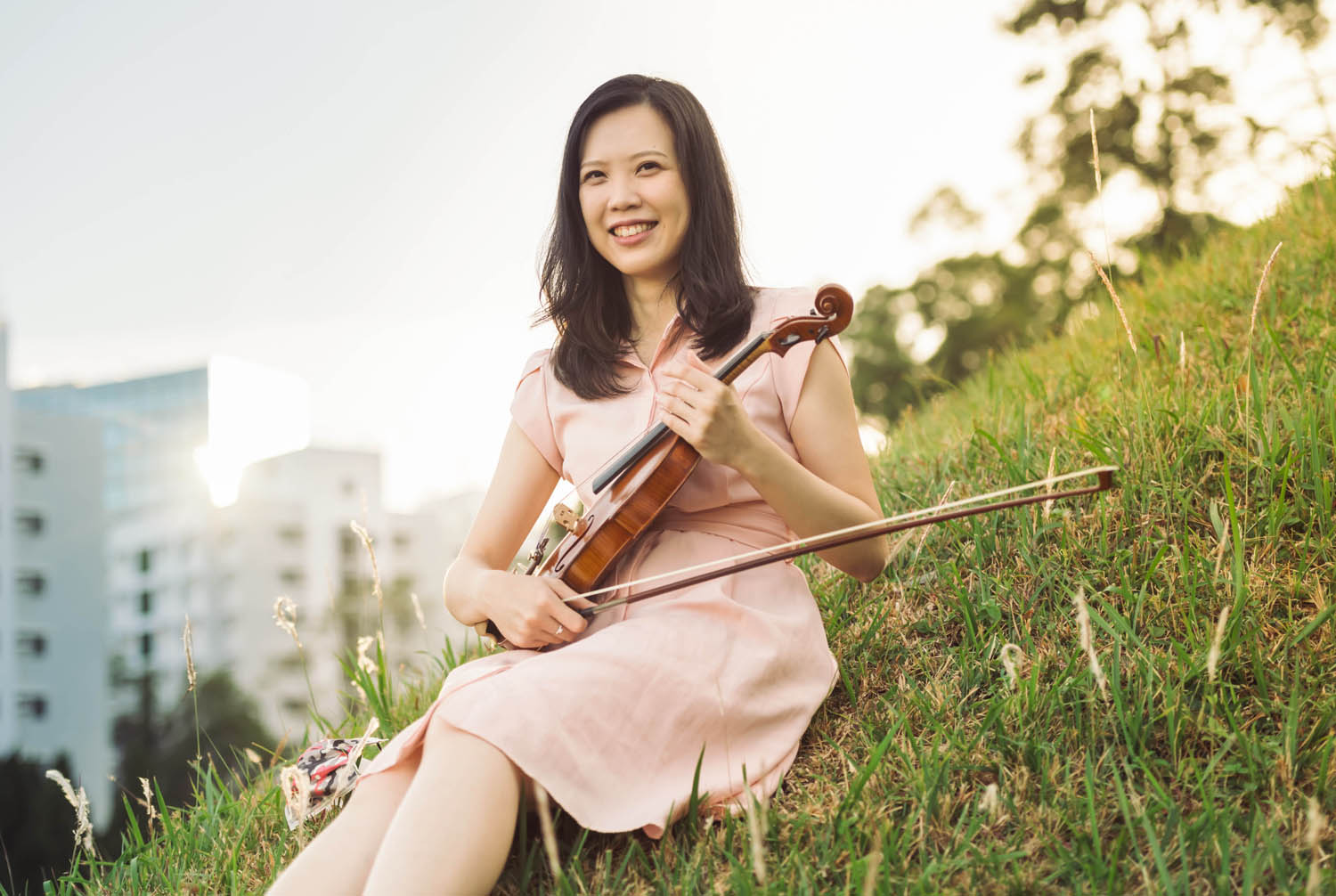
At HKUST we used computers and made websites and we weren’t afraid to embrace new things. This has really helped me to develop my career.
Prokofiev’s symphonic fairy tale Peter and the Wolf inspired in Pauline a love of music and specifically an urge to take up the violin at the age of six. But it wasn’t until much later that she would become fully committed to the pursuit of music as a profession. Before that, Pauline believed that science was the path to take, enrolling in Chemical and Environmental Engineering at HKUST and leaving the violin to her leisure time. She went even further, pursuing a part-time Master’s in Environmental Engineering while working as a Research Assistant at HKUST’s Applied Technology Center. But a tour to Japan to play at a festival while doing her Master’s changed her focus, highlighting the variety and the opportunities such a career could offer.
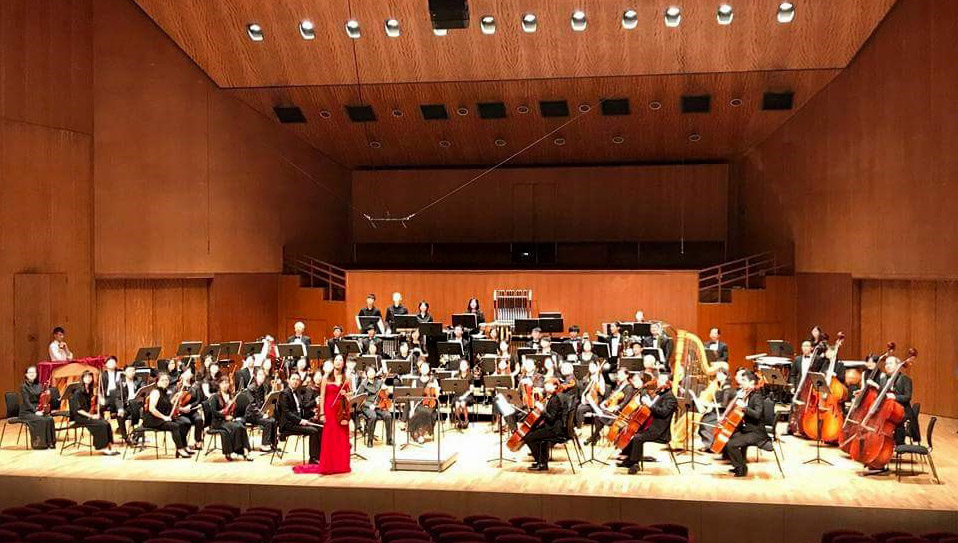
“I didn’t want to be operating a machine and doing the same thing every day. I preferred music, which was more challenging. So, I thought I should try.” With her Master’s coming to an end, she applied to study at the Hong Kong Academy for Performing Arts (HKAPA). It was tough transitioning from playing music for pleasure to doing so more seriously. A relentless schedule of practicing scales, working her fingers and attuning her musicianship followed, but it resulted in acceptance into HKAPA’s three-year program, which would change the course of her life.
Pauline approached music in much the same way as she had approached her study and research assistant work. “It helped me a lot. I knew how to make things systematic and how to communicate with other students. This helped me pick up music, another subject, quickly. And I didn’t waste time practicing because I knew how to do it systematically, for example using a metronome and practicing slowly. It was like doing research, but I enjoyed the music and the sound I was making.”
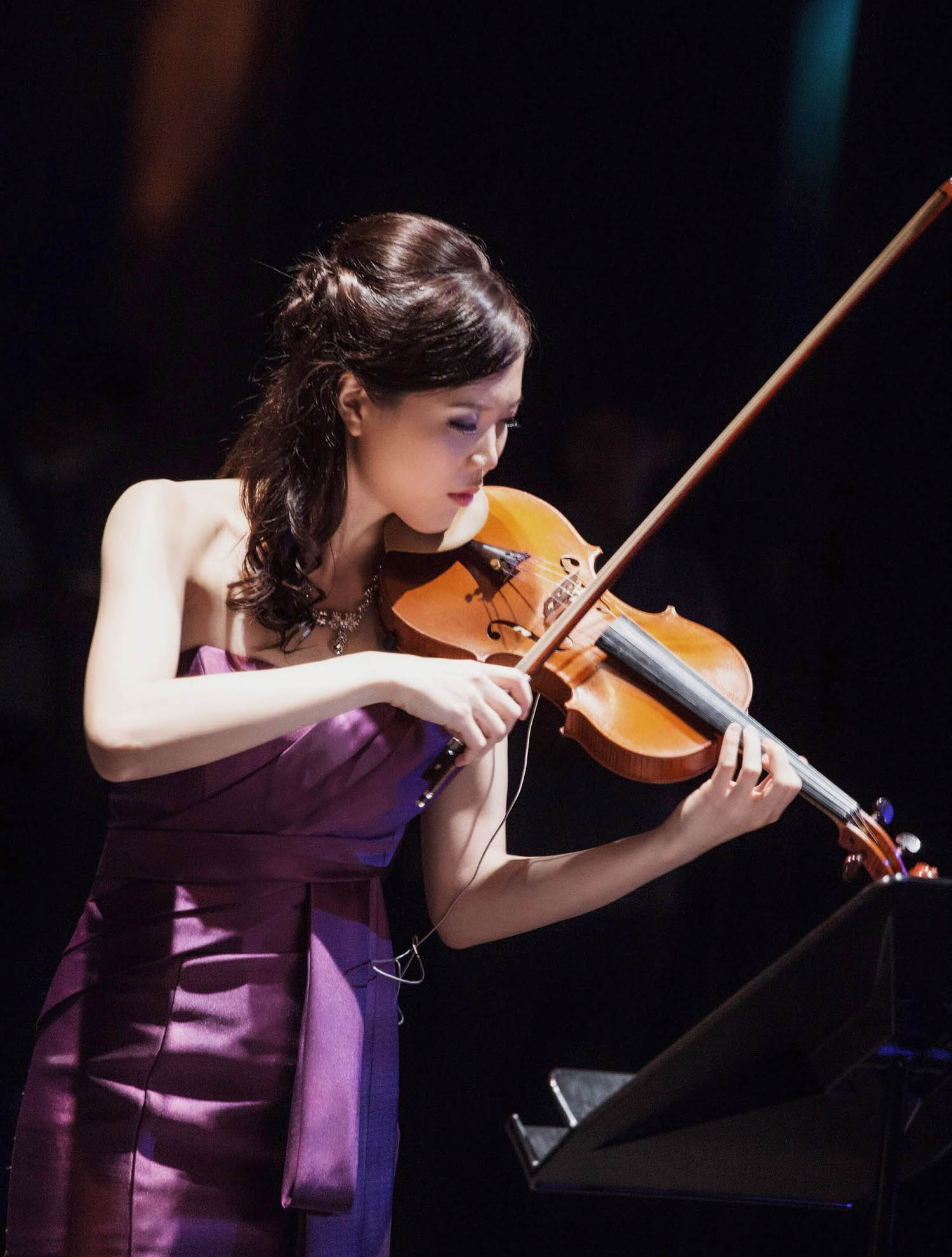
But Pauline still didn’t have a particular path in mind. “I simply wanted to learn how to play properly and advance my technique,” she says. Pauline was already teaching violin on the side and she was keen to develop her confidence and share her expanding knowledge with her students.
The program at HKAPA was competitive, but from it stemmed other opportunities. She applied to attend a summer music camp for two months at the renowned Eastman School of Music in the US, where she worked with other passionate musicians, practicing intensely and performing passionately and forming an important and inspiring connection with violinist Charlie Castleman.
“It was great exposure and I gained a lot of positive encouragement,” says Pauline, so much so that on her return to Hong Kong she decided to apply for further study – a two-year Master’s of Music at the James Madison University in the US. Here she met the second inspirational teacher in her musical journey, Wanchi Huang, who holds a Master’s degree from The Juilliard School and a Doctorate of Music from Indiana University. “These two years were the most important in my life because every day it was just practice, practice, practice. In Hong Kong there are so many distractions but here there was nothing to do but learn.”
As this period of study came to a close, a decision loomed – to study further in the US or to return to Hong Kong. Pauline decided on the latter and found a job in a contemporary ensemble. From there many other opportunities arose, and she has gone on to play with orchestras and worked as a soloist in Hong Kong and overseas as well as establishing her own organization, Splendour Music, to create innovative multi-media performances featuring a mix of classical, contemporary and electronic music alongside visual art and dance.
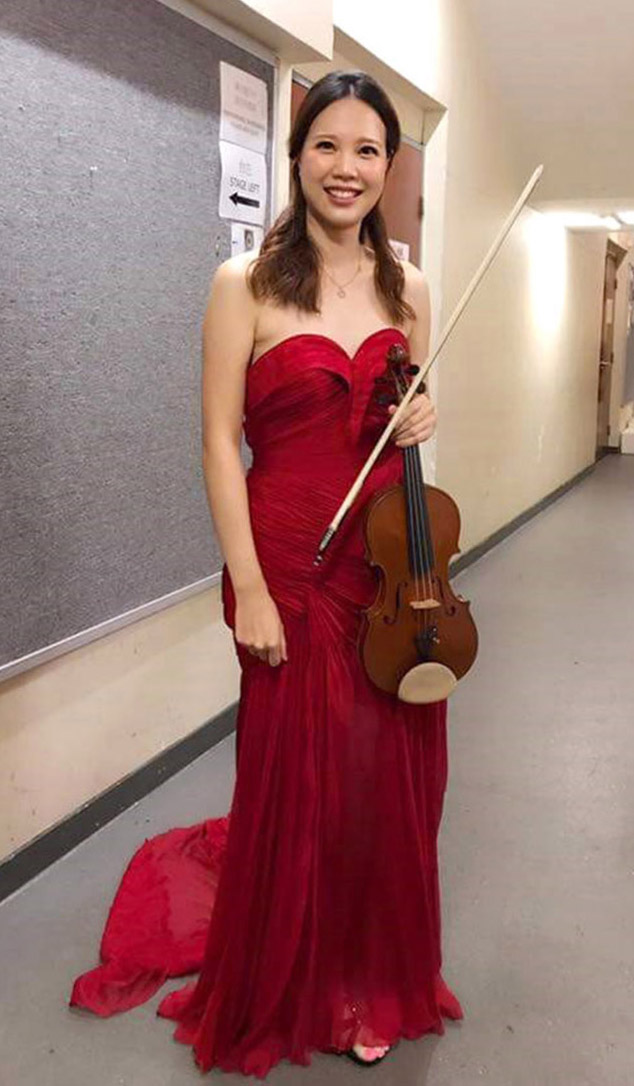
It hasn’t always been plain sailing for Pauline, particularly with the onset of the pandemic, which has seen most performances postponed or cancelled. With her teaching, too, she has had to adapt.
“I’m actually really glad that I have a background in engineering from HKUST because it means I can accept technology. While some of my friends were still considering whether Zoom would be good for teaching, I had already done it and had made a short video course on music theory. At HKUST we used computers and made websites and we weren’t afraid to embrace new things. This has really helped me to develop my career.”
Pauline has also been teaching underprivileged children from low income families in collaboration with the organization Food Angel. “Many of the students haven’t been exposed to music before,” says Pauline and she’s been amazed at the positive effect it can have. “These students learn fast and have passion because they know learning music is not easy and it’s expensive but they have this opportunity. I have a passion for teaching and I want to pass on my talent and skills to the next generation.”
As well as teaching, Pauline has launched PrimoRico Music, a YouTube channel to share her violin playing while the possibility of live performance remains limited. And she continues to practice daily, even if just for half an hour at a time. “I think what I really have to practice now is my mindset – how to keep my passion and also to explore more new things for performance.”


